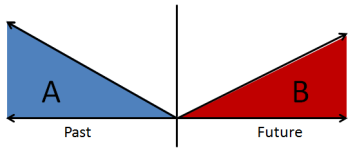untermensche
Contributor
So you've already stopped answering questions?
If time didn't end today, did it end today?
Time didn't end today. Prior present moments ended today.
And yes to have a present moment means ALL the prior present moments have finished.
Today all the prior days ended.
If time didn't have a beginning, is there a boundary in the past that one can measure to that is the beginning of time?
If we talk about the duration of time, then if time has no beginning the duration of that time has no end.
That is all we could say about the duration of time that has no beginning.

